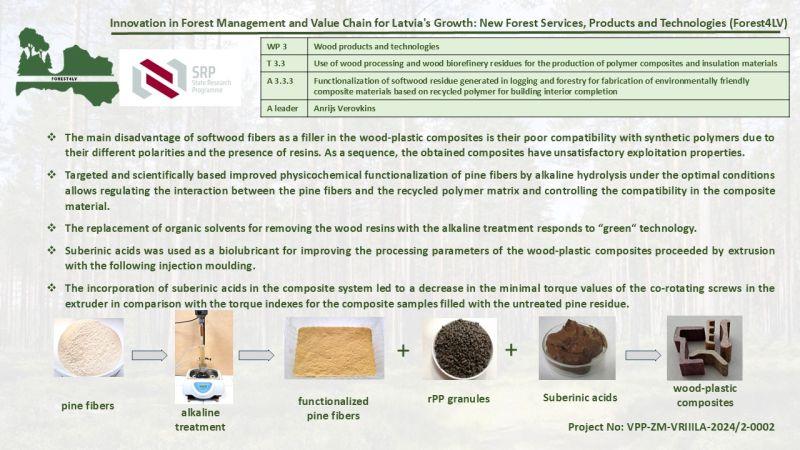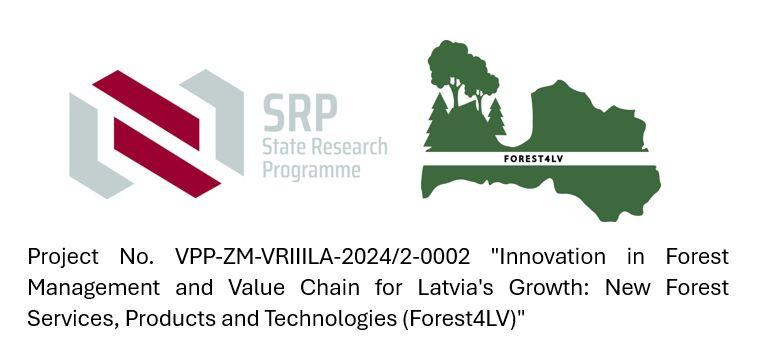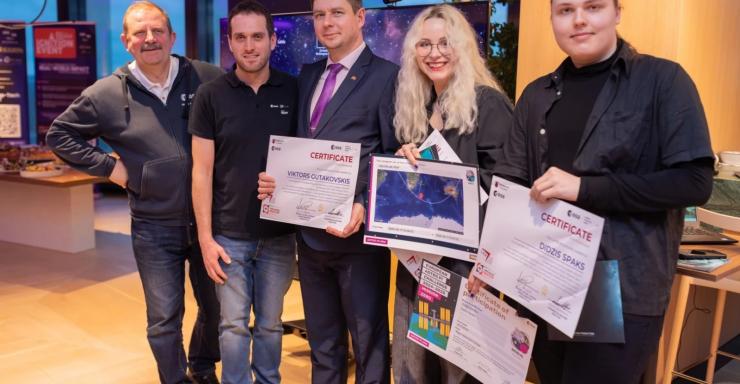Modern materials science seeks to develop solutions that are both technologically effective and environmentally responsible. Wood fibres, as a natural and renewable resource, have long been studied as a promising raw material for composite manufacturing. However, their broader application has been limited by a key challenge: poor compatibility with synthetic polymers. This is mainly due to the different polarities of the materials and the presence of resins in softwood fibres, which can adversely affect the performance of wood-polymer composites (WPCs).

In the Forest4LV project, researchers at the Latvian State Institute of Wood Chemistry have addressed this problem, aiming to simultaneously improve the mechanical performance and environmental footprint of WPCs. The team developed a method that not only enhances compatibility between wood and polymers but also reduces the material’s overall climate impact.
Efficient Fibre Functionalization: From Alkaline Treatment to Suberin Acids
The study focuses on the alkaline treatment of pine fibres, which effectively removes resinous extractives and modifies the fibre surface to improve adhesion with the polymer matrix. This approach enhances the final material’s quality while complying with green chemistry principles—replacing traditionally used organic solvents with a more environmentally friendly alternative.
The functionalized fibres are then combined with recycled polypropylene (rPP) granules and suberin acids. These additives improve melt flow during extrusion, reduce energy consumption, and result in a homogeneous, mechanically stable composite structure. The entire process is illustrated in Figure 1, which presents the full functionalization and composite manufacturing cycle.
Climate Benefits: What the Life Cycle Assessment (LCA) Data Reveal
This research offers not just a technological upgrade—it provides measurable environmental benefits, as demonstrated by multiple life cycle assessment (LCA) studies.
Findings indicate that composites containing 30% wood fibre can reduce overall carbon emissions by more than 40% compared to conventional 100% plastic materials (Auwelant et al., 2025). Moreover, repeated extrusion does not significantly degrade mechanical properties, confirming the recyclability potential of WPCs (Friedrich et al., 2024). Properly engineered WPCs, based on efficient extrusion processes, high-quality fibres, and compatible coupling agents, offer excellent durability and sustainable performance even in demanding environments such as marine climates. At the end of their life cycle, such materials can be either recycled or used for energy recovery with a lower environmental burden than comparable fossil-based alternatives (Lanzoni et al., 2025).
The Forest4LV project demonstrates that innovative fibre treatment and advanced composite design can effectively address both technological and environmental challenges. This approach enhances the mechanical performance of the final material while significantly reducing its carbon footprint—marking a meaningful step forward in climate-conscious materials science.
The WPC development activities within the Forest4LV project are led by Dr. chem. Anrijs Verovkins.



